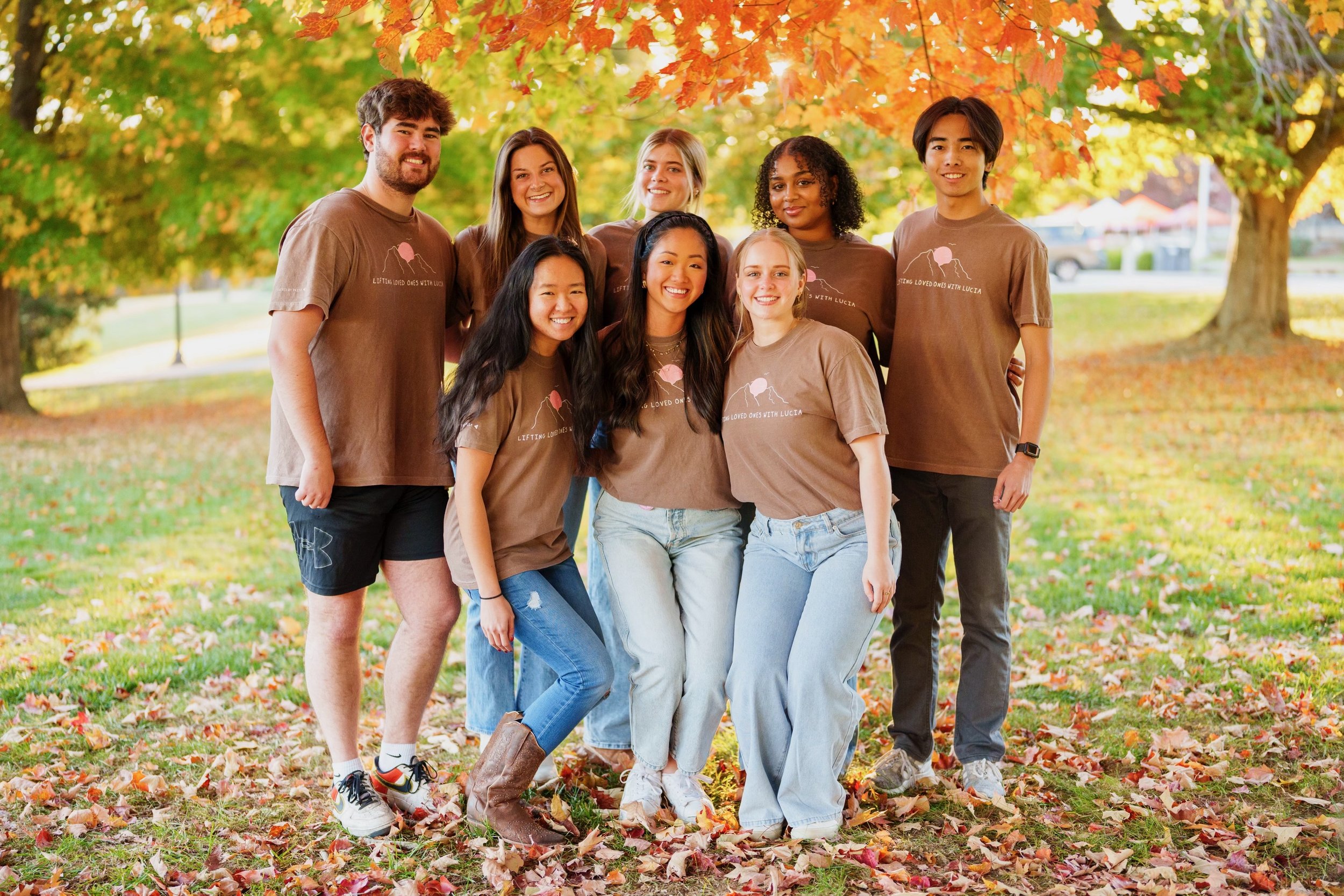Lifting Loved Ones with Lucia
In the purest and simplest way, compassion can be defined as an infinite connection between another person’s humanity. Holding space for complex conversations allows us to connect with those around us, empowering wellness and healing. As a community, we have more strength together than we do alone, especially when we compassionately listen to one another. Stigma loves silence. Talking about our experiences to break this silence serves as an impactful way to help compassion drown out shame.
Within New River Valley, community members work hard everyday to address stigma by using their voices to initiate change. For instance, an undergraduate student named Lucia Fang ran for a position in the 2024 Virginia Tech homecoming court this fall. Her platform, entitled “Lifting Loved Ones with Lucia”, strove to break down the divisive stigma surrounding substance use disorder (SUD) that stands in the way of compassion and recovery. She aimed to create more on campus support for people with friends and family impacted by addiction.
As a marketing student, Lucia was able to gain notable attention on social media. Although she was not elected to Virginia Tech’s homecoming court this year, Lucia’s campaign successfully achieved its primary goal by spreading an impactful message of acceptance and caring. The project’s instagram page reached 23.4k accounts, garnering a total of 113k video views. In addition to generating a robust social media presence, Lucia presented her platform on 24 separate occasions to over 1,500 students across campus. Throughout the campaign, she tabled outside of dining halls to talk to passersby about her message. As someone with a sibling in longterm recovery from an opioid use disorder, Lucia discussed how stigma surrounding SUD almost stopped her from launching the campaign.
“I was kind of worried. My close friends know about my family's story and how that impacts me, but a lot of people don't really know about that. It's not something I typically share with people. And so, I think I was nervous about how that might affect my social life and how people perceive me.”
Despite fear of receiving judgement, Lucia moved forward with the knowledge that her platform held the potential to help other students who may be experiencing similar challenges. The practice of including others allows us to better understand each other, ultimately strengthening our connections as a community. Lucia explained how her homecoming candidacy helped her to see the value of inclusion.
“That's why the overall messaging of my platform [was] along the lines of ‘you're not alone, there's strength in community’, because that's something that I saw throughout the week of homecoming. Seeing it from all of my friends who were coming forward to me and sharing their stories and just feeling like they weren't alone… they had a place they could go to where they would feel comfortable sharing and a group of people to support them.”
Lucia recognized that collaboration would help her to appropriately open a dialogue about SUD stigma and recovery. She worked in partnership with the Virginia Tech Recovery Community, promoting their resources as they guided the Lifting Loved Ones platform with proper language and information. Instead of worrying about public perception, Lucia fought against internal feelings of imposter syndrome and decided instead to use her voice to talk about an issue that matters to her.
“At the end of the day, I just felt like I wanted to put my best foot forward. I had no idea [the campaign] would have that magnitude, but it's something I'm very grateful for now.”
To learn more about Lifting Loved Ones with Lucia, you can visit her Instagram page or visit the VT Prism website. The Virginia Tech Recovery Community offers weekly meetings, group events, allyship trainings, and recovery housing for students. For more information, visit their website or navigate to the Hokie Wellness page.

